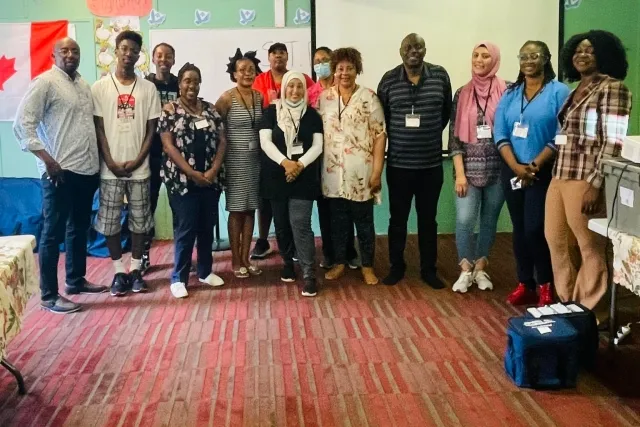Dr. Godwin Ude, MBA, PhD
Executive Director, Kingdom Acts Foundation
As an organization focusing on New Immigrant Settlement Program, Kingdom Acts Foundation appreciates the British Columbia resettlement processes’ efforts to make Canada a welcoming country for immigrants. However, my experience has identified several significant gaps, particularly affecting new immigrants and refugees from developing nations forming the BIPOC communities in Canada.
Firstly, the current resettlement process must address many immigrants’ linguistic challenges adequately. Although there are free language classes, they often lack the capacity to meet the diverse needs of immigrants, such as translation services for documents or multilingual mental health support. Providing more comprehensive, individualized language training and services is crucial to facilitate smoother integration.
Secondly, credential recognition still needs to be improved. Skilled immigrants often need help to have their professional qualifications recognized, which leads to underemployment and financial instability. This issue is particularly pronounced in the BIPOC communities. Policies to streamline foreign credential recognition will help immigrants maximize their potential and contribute more effectively to the Canadian economy.
Thirdly, cultural sensitivity in support services needs to be enhanced. Programs should consider cultural norms, historical experiences, and unique challenges facing the BIPOC communities. For instance, refugees fleeing conflict may require trauma-informed care, and the current one-size-fits-all approach to services can be inadequate.
Fourthly, more access to reliable information about essential services, rights, and laws must be available. Many immigrants and refugees must be fully informed of the resources available or their rights and responsibilities under Canadian law. This lack of knowledge can contribute to feelings of isolation and disempowerment.
Lastly, the current process needs to facilitate community connections sufficiently. Immigrants and refugees often feel isolated due to needing more opportunities to engage with the broader community. Implementing cultural exchange and interaction initiatives could foster a more inclusive society.
To address these gaps, I propose a multi-pronged approach:
- Enhance Language Services: Implement tailored language programs and translation services for different groups, considering age, educational background, and specific needs.
- Streamline Credential Recognition: Work with professional bodies to streamline foreign credential recognition and provide support to immigrants during this process.
- Culturally Sensitive Services: Training for service providers to enhance their understanding and sensitivity towards diverse cultures. A trauma-informed approach should be employed where necessary.
- Improved Information Access: Develop accessible platforms that provide clear and comprehensive information about available services, rights, and laws.
- Foster Community Connections: Encourage initiatives that promote cultural exchange, such as mentorship programs, community events, and volunteering opportunities.
While British Columbia has made strides towards being an inclusive province, there still needs to be more in the resettlement process. By addressing these, we can ensure that all new immigrants and refugees feel welcome and respected and contribute fully to their new communities.

